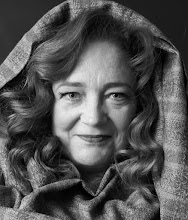If you’re anything like I was, these words might express your predominant feelings about exercise.
And believe me, I understand. I so understand. And I totally relate.
I remember being one of the rounder little girls in elementary school. I remember going to gym class in first or second grade, and having to climb a rope. (To this day, I don’t see why it’s important for a first grader to climb a rope.) And I was the worst rope climber in my class. I couldn’t do it. And as one of the heavier kids in grade school, I was consistently one of the last kids to be picked for any sort of team. Then in high school, I was required to take one year of physical education, and my lack of physical coordination earned me a grade of C.
And so, for the first 45 or so years of my life, to me, exercise was a drag. Of course, smattered along the course of these 45 years were New Year’s Resolutions, aerobics classes, Jane Fonda videos, and some intense and frustrating events on Stairmasters and in weight rooms. But none of these experiences ever lasted very long. None of them really took, because I told myself, time and time again, “I hate this. Exercise is such a drag.” Exercise was something that I knew, intellectually, was good for me, but it was something that I could never quite commit to.
Until. . .
I made a conscious, intentional, and determined shift in my thinking.
It wasn’t until I shifted what I said to myself about myself that I was able to move into the realm of actually enjoying moving my body. With almost 50 pounds of excess weight on my body, I began to notice things about my physical self that I liked. And it wasn’t easy, to begin with. But the more I did it, the easier it got. I began to be grateful for my legs, which allowed me to walk up a flight of stairs. I began to be grateful for my wrists, which allowed me to grip a pen, hold a steering wheel, wash a fork, and hold a musical instrument. I began to be grateful for my eyes, which allowed me to see beauty everywhere I looked. I began to be grateful for my big toe, which allowed me to be mobile and balanced.
As I approved of my overweight body, and appreciated the pleasure I could experience in my overweight body, I began to want to care for it in a more loving way. I began to want to eat more healthful food. I began to want to move it in a way that was fun for me. I began to set an intention of getting in the best shape of my life.
As I acknowledged all the amazing things that my body could do for me, I began to actually enjoy moving it. I started out going for a brief walk. Then it expanded into a longer walk. Then it morphed into running short distances. And then the distances increased. And now I consider myself a distance runner.
Transformation is possible. For me, my thoughts of “Exercise is such a drag!” morphed into “I love to run.”
The key to this? Loving, approving, and appreciating your body, as it is right now, regardless of the number on the scale.
Up next: Forgiveness and Weight Loss
